Staff Inquiry: Our Favorite Betrayals

Alex is a film addict, TV aficionado, and book lover.…
We here at Film Inquiry always beware the ides of March, especially since cinema is full of backstabbers and double-crossers even more cutting than Brutus. Every once in awhile, though, we get caught unawares, and these brutal betrayals stick with us.
In honor of this treacherous month, our writers are highlighting their favorite (that may be the wrong word) betrayals in film. Obviously, spoilers ahead.
Stephanie Archer – Star Wars: Episode V – The Empire Strikes Back (1980)
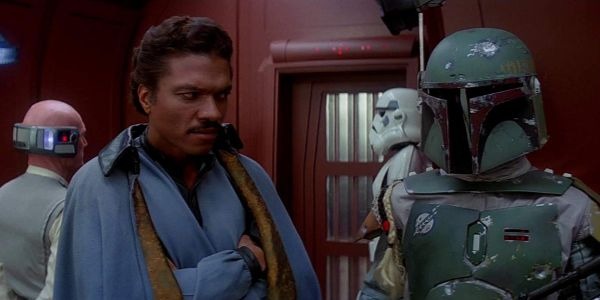
When thinking of the best cinematic betrayals, several prime examples come to mind – yet nothing is as traitorous as Lando Calrissian in The Empire Strikes Back. The word scoundrel may not have been created because of him but he is the perfect encapsulation. While many may argue he had no credibility to begin with, there was a deeply rooted connection and friendship between Lando and Han Solo that drove Solo to seek out his protection. There was a belief that Lando was and still is a good man, one who would never betray.
When the moment of betrayal is revealed, Darth Vader taking the small gang captive, torturing Solo with the intent of luring Luke Skywalker to Cloud City, there is true shock and hurt on Han’s face. While Leia looks less surprised, hurt and shock still shows – though her is coupled by the trust she has put in Han Solo’s judgement. This was a man Solo had vouched for, and he had just handed them over to the dark side.
An apparent scoundrel to the core, there is a redeeming quality in the choice that Lando makes, both in the decision to betray his friends and in the attempt to redeem himself later one. While there is a deep rooted need to save his own hide from the retaliation of the Empire, he was also thinking of the people of Cloud City. He is their leader and protector first and foremost. While his abandonment of the City when he finally chooses a side later on makes this less credible, validating the need to save his own self more, the pain and regret the moment he hands Han, Leia and Chewie over is a clear driving force in his need to not only save the princess and the Wookie later on, but to join the rebellion, fighting to save Han from Jabba and bring down the Empire.
Lando is one of the greatest betrayals, his coy and luring demeanor leading his “friends” right into the mouth of hell, yet he is not one without conscience, making his betrayal more personal and deeply regretting. And where other betrayals in the past have set their characters up for defeat and death, his betrayal was the final strike to set him on the path of redemption. His bottom of the barrel is the rebellion’s retrospective checkmate in the final battle to come.
Zoe Crombie – Get Out (2017)
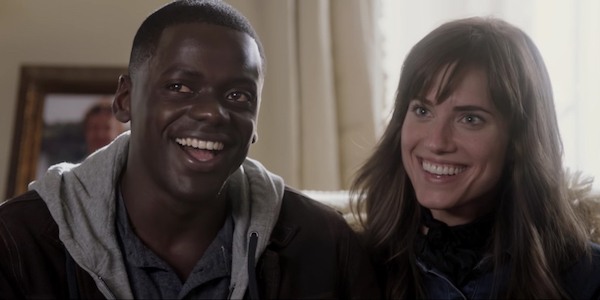
Many famous movie betrayals are revered for the complexity and relatability they add to the offending character, giving them intriguing motivations or perhaps a layer of tragedy. This certainly isn’t the case with Rose Armitage, the girlfriend of protagonist Chris in Jordan Peele’s debut feature Get Out, whose sudden switch from warmth and affection towards him to a cutthroat determination to kill him comes as a depressing surprise.
Up until this point, Rose was Chris and the audience’s guide to her racist, unsettling family, reassuring us that an ally is present to make sure things don’t go too awry. But when Chris is truly put in danger, she turns, stopping midway while looking for the keys to his escape to indifferently flash them at him, revealing with dead eyes that he won’t be getting away so easily.
In Hollywood movies about race, it’s far from uncommon to have a sympathetic white character protecting the black lead, from Schultz in Django Unchained to Skeeter in The Help. In this case, however, Peele pulls the rug out from under us – the white woman, so often depicted as the innocent catalyst of black aggression, is herself the aggressor, subverting a racist cinematic notion that begins with The Birth of a Nation and continues to this day.
Peele is making a fantastically bold statement with this betrayal: all white people are institutionally inclined towards racism, even those who seem more sympathetic. And while in the real world not every racist white person will necessarily be involved in a murder cult based on eugenics, this extreme example truly drives the point home.
Dave Fontana – Gone Girl (2014)

Rarely has betrayal been as seeringly presented than in David Fincher‘s Gone Girl, based on the novel by Gillian Flynn. One of the most standout reasons for this is because the betrayal is twofold. The film deals with the marriage of Nick (Ben Affleck) and Amy (Rosamund Pike). Nick is the first to betray Amy, by not only cheating on her but also by completely turning his back on the loving, doting husband that he used to be. It’s even more of a biting betrayal because Amy turned her life upside down to move to Nick’s hometown, also putting up money from her own fortune to purchase the bar that both Nick and his twin sister own.
And how does Amy respond to this betrayal? Well, the way any scorned wife would, obviously: by creating a complex web of intricate lies over a year or so, orchestrating the perfect setup of the murder of herself, and then seamlessly framing her husband for it. The sheer level of devotion that Amy puts into her scheme is admirable, despite also being absolutely bonkers. As Amy says later on, though, “that’s marriage.” One spouse wields the power, until the other pulls it back over to their side. Typically, it’s not to such an extreme, but has any film more horrifingly satirized that most precious of sacraments?
Soham Gadre – The Lord of the Rings: The Return of the King (2003)
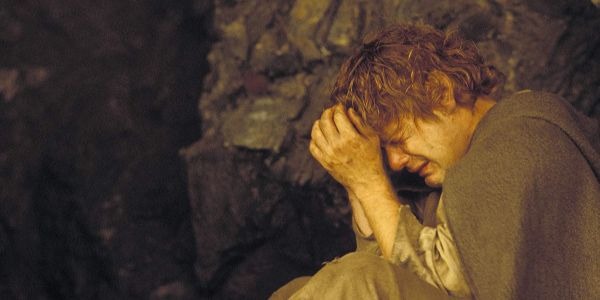
While Frodo treats his best friend, confidant, and gardener Samwise Gamgee like dirt numerous times throughout the trilogy, the most devastating and unforgivable moment of betrayal occurs on the steps of the Tower of Cirith Ungol. Gollum frames Sam by placing crumbs of Lembas bread on his coat and throwing the rest of the bread away to make it look like Sam greedily ate all of the rations. Frodo falls for it hook, line, and sinker. It’s really an apt political allegory of how the downtrodden constantly fall prey to the trickery of evil and the neutrals always side with the latter.
Like many great acts of betrayal in film, the power comes from the acting. Sam’s blubbering after Frodo tells him to go home is the best sequence of acting in the whole trilogy. Sean Astin completely leans into Sam’s rather helpless, weak, and good-hearted nature. One would say that Frodo is not completely at fault here, having to bear the burden of carrying The One Ring, but that doesn’t excuse the fact that he was ready and willing to abandon Sam after spending months traveling to Mordor with him.
What’s more, he abandons him in freaking Cirith Ungol, one of the most dangerous Orc outposts, just past Minas Morgul, the Dead City, home of the Witch King. While Sam certainly proved his secret ability of being a ruthless swordsman later on when he defeated Shelob and killed a bunch of orcs to save Frodo like the eternally loyal friend he is (and make Frodo look even worse by comparison), returning back to the Shire unscathed still would have been a near impossible task. Let’s face it, Frodo basically left Sam to die in favor of…. Gollum. That’s as cold-hearted as it comes.
Katy Kostakis – Kill Bill Series
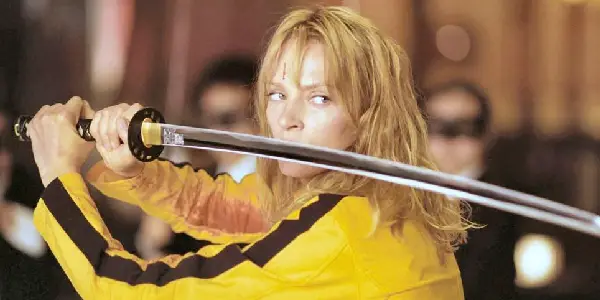
In the “roaring rampage of revenge” that is Kill Bill, it makes perfect sense that all the major characters possess code names that are of snakes. If you break it down, practically everyone in this movie screws over someone else.
The center of the vortex is that of The Bride (later to be revealed as Beatrix Kiddo) suffering the greatest overall amount of treachery from the others in the Deadly Viper Assassination Squad, but make no mistake about it, she lit that first stick of dynamite. The catalyst of all that betrayal began with her picking her own unborn child over the other members of her dysfunctional “family”. Rather than remain a professional killer, she goes into hiding and lives under an assumed name, which goes against her very nature as a “renegade killer bee”, as Bill (aptly monikered as the Snake Charmer) points out.
If revenge is a dish that’s best served cold, this lot serves up endless bowls of vichyssoise and gazpacho. Once the remaining Vipers chose to take out one of their own, any semblance of solidarity was obliterated. Over the course of both volumes, vengeance abound, each of them aids in ripping the entire organization apart. From planting an actual snake in a camper to calling a fellow member a “hateful bitch”, the beauty is that every single one of them is just as corrupt as the next, and they know it. Yet they also accept the inevitable, as Budd states in Volume One when referring to Beatrix: “That woman deserves her revenge, and we deserve to die.”
There is an old saying that if you cut a snake’s head off, five more grow back in its place. Let’s not forget that Beatrix did have to go through many more than that to get to Bill.
Maria Lattila – Alien (1979)
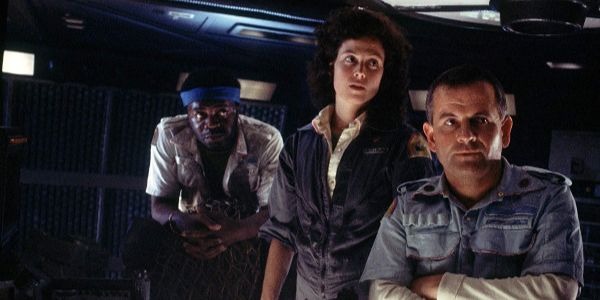
When it comes to best betrayals in films, nothing really jumps out from the depths of your memory. They’re all the same, the good guy is actually the bad guy, surprise! But there is one betrayal so shocking it has stuck to my memory like glitter on glue.
Ash’s betrayal in Alien goes much further than a good guy turning out to be a bad guy. When Ripley first discovers that Ash has been instructed by the evil corporation to bring the alien back with him and the crew is expendable, Ripley confronts Ash about it. Not only is Ash really on the corporate side, he also turns out to be an android, a machine, all wires and circuits. The betrayal runs deeper than good guys and bad guys; it now extends to species.
It’s a shocking turn of events, and if it couldn’t get any worse, Ash attempts to choke Ripley with a pornographic magazine. He rolls it up into a phallus-like device and then shoves it down her throat in an uncomfortable imitation of deadly fellatio. Ash has not only fatally betrayed his fellow crew members, he has betrayed the entire human race by allowing the alien aboard the ship. He describes it the perfect organism, valuing it higher than humans who he sees as not worthy and undeveloped. He taunts Ripley and the remaining crew members about their chances of survival, knowing fully well the crew stands no chance against the creature.
It’s a betrayal like no other, and that’s why it’s one of the most effective ones in cinematic history. It’s also the perfect twist; it’s not obvious, but it also feels natural and satisfying because it’s so well played. Kudos to Ridley Scott for making me scared of robots with magazines!
George Nash – The Room (2003)
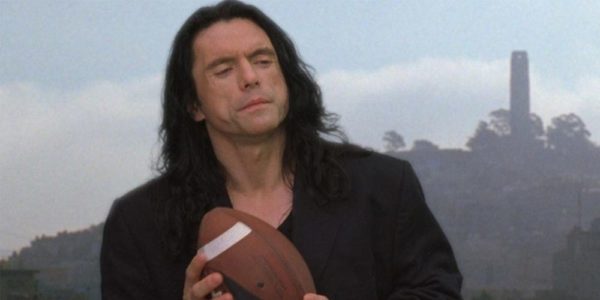
2003: the year of Frodo finally destroying the ring and saving the world, the year of a pre-zombie apocalypse Rick Grimes professing his love to Keira Knightley via some pretty hefty cue cards, and the year of Knightley also taking to the seas — the Caribbean, specifically — and starting to believe in ghost stories with some plucky pirate pals. But 2003 was also the year of something altogether more memorable.
Think ropey green screen and an unhealthy obsession with spoons. Think of nonchalantly delivered lines about cancer and a 3-word greeting that has become the stuff of movie folklore. Think of an ass that is as famous as the entirety of Middle Earth (and just as otherworldly). Forget Jackson and Jack Sparrow, we’re talking about Tommy Wiseau.
As the writer, director, producer, star — heck, he probably even made the on-set tea and sarnies – The Room is quite evidently Wiseau’s passion piece. And there’s passion to spare here, not least during the film’s numerous intimate bedroom scenes that border on the realms of softcore pornography. But The Room also features one of the most devastating movie betrayals ever put to film.
And it’s a double-whammy treachery of the highest melodramatic order. Wiseau plays San Fran resident Johnny, an all-round great guy and the most unconvincing banker of all time, who shares his seemingly always-unlocked apartment with fiancée Lisa (Juliette Danielle) — of “you are tearing me apart, Lisa” fame — and pretty much everyone else. Best bud Mark (Greg Sestero) is a regular visitor, but Johnny’s world is about to implode when Mark and Lisa begin a raunchy affair under his very nose. It’s a wonderfully ham-fisted sucker-punch that ultimately ends in tragedy when a heartbroken Johnny kills himself at the film’s climax. Be it through laughter or excruciating retinal pain, there won’t be a dry eye left in the place.
Luckily for loyal Wiseau disciples, the disaster artist is soon returning to our screens when his newest project, Big Shark, gets its release later this year. After the gargantuan success of a film Entertainment Weekly called “the Citizen Kane of bad movies”, Wiseau looks set to make waves in Hollywood once more. Naturally, the overriding question in all of this is whether Wiseau will, perhaps literally this time, get torn apart all over again?
Kristy Strouse – The Godfather: Part II (1974)
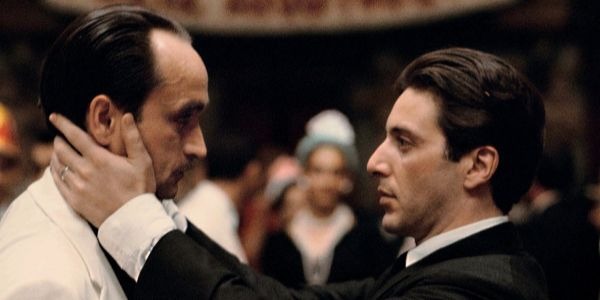
Why does anyone betray another that they love? With The Godfather: Part II it’s a mix of jealousy and resentment, a feeling of being overlooked, and partially his ego that leads Fredo to betray his brother.
Not only is it a horrible and risky move to betray your family, but the don of a large and powerful crime one? That’s unmistakably stupid.
The Godfather is undoubtedly one of the best and most iconic films of all time. There are a lot of scenes that stand out, and one of them is the moment when in the middle of a Havana club, Michael (Al Pacino) grabs Fredo (John Cazale) in his hands, kisses him, and tells him that he knows what he did.
“I know it was you, Fredo. You broke my heart.”
There’s no happy ending between these brothers, and by the end of the trilogy it is clear that this had a lingering and heart-wrenching effect on the family. Pacino kills it in that sequence (and every other in the first two films), and through the intensity when he confronts Fredo, with so much brimming to the surface, he delivers some of his best work. Cazale’s performance can be often overlooked, but as the panicky Fredo to Pacino’s intimidating Michael, he’s the perfect counterpart.
Among the sting of many other cinematic betrayals, this is my personal favorite.
Jake Tropila – L.A. Confidential (1997)
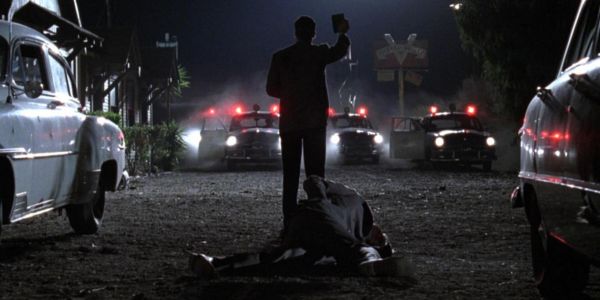
I consider Curtis Hanson’s L.A. Confidential to be one of the finest American screenplays ever produced. A knotted web of murder, mystery, and double crosses, the Oscar-winning screenplay is sharply written and densely plotted, featuring a hefty twist that’s sure to knock the wind out of first-time viewers. Midway through the film, straight arrow Detective Sergeant Ed Exley states “Rollo Tomasi is the reason I became a cop.” Well, Rollo Tomasi is the reason why I love movies, and it can all be pinpointed to the scene with one of cinema’s greatest betrayals.
The setup: Vice Detective Jack Vincennes (Kevin Spacey…stay with me) has teamed up with the aforementioned Exley on a convoluted murder case, one that includes the death of a fellow police officer. Vincennes has made a breakthrough, both in his personal life and on the case, and pays a late-night visit to his commanding officer, Captain Dudley Smith (James Cromwell), to divulge this new information.
And in return, he is greeted with a .32 slug to the heart.
This betrayal is shocking for several reasons. First, Spacey had ostensibly been the film’s lead up until that point, and his sudden shift in character had placed him on a path to certain redemption. Second, his killer is played by Cromwell, perhaps best known to viewers for portraying the kindly farmer in Babe. And lastly, with his dying words, Vincennes plants the name “Rollo Tomasi” in Captain Smith’s head, knowing Sergeant Exley is the only person who knows the meaning of that name (it’s the pseudonym he gave to his father’s uncaught killer), and thus allows Vincennes to posthumously finger Smith for his murder. Hook, line, and sinker.
Plus, we get the cathartic image of Kevin Spacey getting shot and killed onscreen. Not the worst thing to happen, all things considered.
Tynan Yanaga – The Treasure of the Sierra Madre (1948)
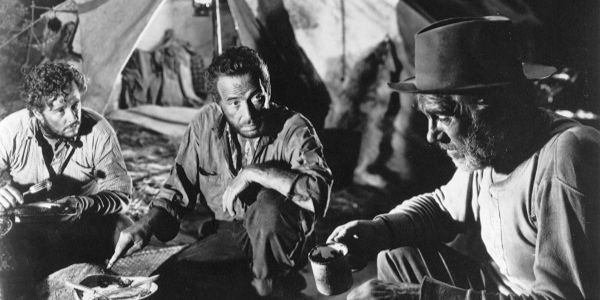
Off the top of my head, the two greatest betrayals in the annals of history go to Judas Iscariot and Brutus, hence the title of our inquiry this month. In consideration of this issue, it seems we must delve into human psychology. The best cinematic betrayals are not simply a twist we didn’t see coming. This can be part of it, but if there is no underlying resonance, the momentary rush will fade away altogether.
It seems important to dig deeper, because betrayal always has another motive buried underneath. Some of the most prominent examples are for want of power or outright avarice. In this regard, one of the most staggering instances must be attributed to Humphrey Bogart in The Treasure of the Sierra Madre. While Fred C. Dobbs starts out as a prospector in the earnest pursuit of wealth, time taints his mind to the point of destruction.
While John Huston’s movie has so many laurels worth acknowledging (including his father, Walter Huston), at its core is a man who becomes so demented with paranoia he commits the most egregious sin: turning on his fellow man. This dates back further still – not to Judas – but to Cain and Abel. Becoming a slave to money only comes back to bite him. The utter irony is that if you sacrifice all else for silver and gold, your wealth will only end up betraying you, too. The treachery never ends. There is no freedom found down this road, only bitter gall. It’s all striving after the wind, a wind that blows riches to oblivion.
Those are some of our favorite betrayals in film. What are some of yours?
Does content like this matter to you?
Become a Member and support film journalism. Unlock access to all of Film Inquiry`s great articles. Join a community of like-minded readers who are passionate about cinema - get access to our private members Network, give back to independent filmmakers, and more.
Alex is a film addict, TV aficionado, and book lover. He's perfecting his cat dad energy.













